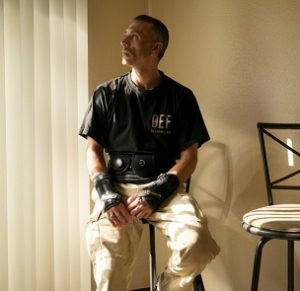When the brave men and women of the U.S. Armed Forces are deployed, their primary mission is to protect our nation. That mission can be jeopardized when their lives are interrupted with consumer scams, abuses, and fraud. Predatory schemes often specifically target our military, leading to significant financial strain on servicemembers, veterans, and their families. Indeed, a study by the U.S. Army Reserve found that financial stressors were the second leading cause of suicide among servicemembers in 2013.
Recognizing this, Congress extended financial and civil protections to our military and their families in 2003 through the Servicemembers Civil Relief Act (SCRA). SCRA was intended to ease economic burdens on military personnel called into service, and to ensure military readiness by protecting servicemembers from default judgments, foreclosures, and repossessions. However, SCRA assumes service members will be able to access the court system to enforce these crucial protections.
Servicemembers and their families are hurt by forced arbitration
In the years since SCRA was passed, banks and lenders have been quietly stripping service members of their rights by forcing them into arbitration. Recent changes to the Military Lending Act prohibit this practice for specific types of transactions, but companies can still mandate arbitration in many circumstances. Most forced arbitration clauses also ban servicemembers from joining together to file similar claims as a class, ensuring that small-dollar scams are rarely challenged. The result is that banks and lenders violating SCRA or other constitutional and statutory protections are immune from accountability, service members are left with no way to vindicate their rights, and our military readiness and national security are threatened as a result.
Indeed, the Office of Servicemember Affairs at the Consumer Financial Protection Bureau (CFPB) reports the agency received more than 19,000 complaints about financial fraud and abuse from service members in 2015 alone. The negative effects of forced arbitration on service members and their families are so widespread that a 2006 report by the Department of Defense concluded the following:
Service members should maintain full legal recourse against unscrupulous lenders. Loan contracts to Service members should not include mandatory arbitration clauses or onerous notice provisions, and should not require the Service member to waive his or her right of recourse, such as the right to participate in a plaintiff class. Waiver isn’t a matter of ‘choice’ in take-it-or-leave-it contracts of adhesion.
—U.S. Department of Defense, 2006
Stories
Sergeant Charles Beard, U.S. Army National Guard
Sergeant Charles Beard asked for some help making his car payments before deploying to Iraq. His lender offered to postpone his payments for a few months, but in exchange, required Sergeant Beard to sign a modified lease agreement. Little did he know, a forced arbitration provision was buried in the fine print.
While serving his country in Iraq, Sergeant Beard fell behind on his payments. The lender repossessed the car – violating SCRA, which protects active duty soldiers by requiring lenders to obtain court orders before seizing their possessions. Sergeant Beard brought a class action against the lender with other soldiers, but their claims were thrown out due to a class action ban in the arbitration clause.
